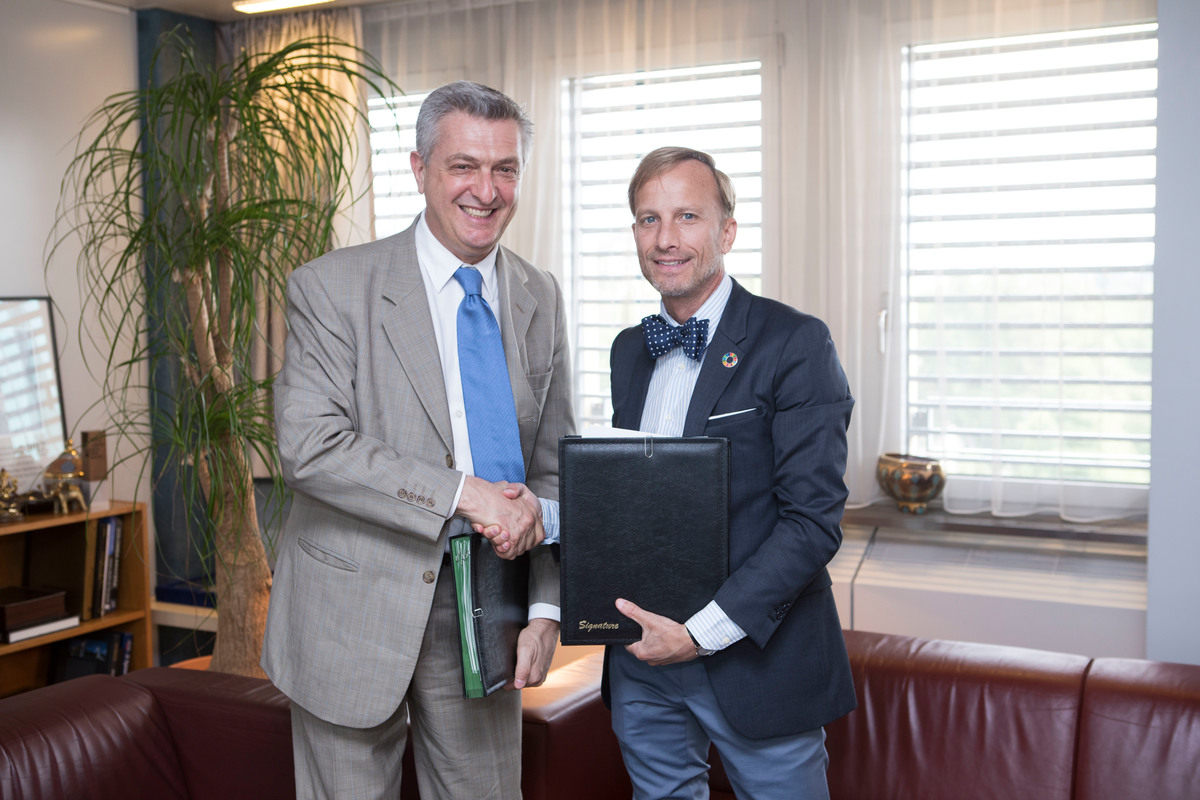Namibia joins South Africa and Zambia in extending HIV/AIDS treatment to refugees
Namibia joins South Africa and Zambia in extending HIV/AIDS treatment to refugees

WINDHOEK, May 10 (UNHCR) - Each day six refugees living in Namibia now take anti-retroviral therapy (ART) provided by the government, adding one more country to the list of those guaranteeing refugees access to the same vital treatment for HIV/AIDS that is available to their own citizens.
The total of people immediately affected - six refugees receiving medicine and another 10 due to start - is less important than the proof that the number of countries giving refugees access to ART is growing.
In southern Africa, Namibia has now joined South Africa and Zambia on the list of countries that explicitly guarantee that refugees have access to ART. Most other countries in the region provide assistance on an unofficial basis, leaving Botswana as the only country that officially denies refugees equal access to ART.
In Osire refugee camp, in north central Namibia, the news has given refugees affected by HIV/AIDS hope. "Refugees in Namibia have been brought into a comprehensive system of treatment and not left to face almost certain death in Osire refugee camp," said Laurie Bruns, the regional HIV/AIDS adviser for the UN refugee agency. "This is another step toward the UNHCR goal of eventually getting formal inclusion of refugees in the HIV/AIDS programmes of every country."
Although refugees have sometimes faced xenophobic charges that they are potential source of HIV infection, the reality is largely the opposite - refugees are at risk. For a variety of reasons, such as originating from countries with low infection rates, living in isolated areas in host countries, or benefiting from the education and health care provided in refugee camps, refugees often have lower HIV prevalence rates than their host communities.
Most of the 6,000 refugees still in Namibia - down from 20,000 in 2001 after repatriation to Angola - came originally from Angola, with others from Rwanda, Burundi and the Democratic Republic of the Congo.
Those countries have relatively low HIV rates, hovering around four to six percent according to UNAIDS. In contrast, many countries of asylum in southern Africa have HIV rates exceeding 20 percent.
But because southern Africa has the highest HIV rates in the world many host countries have fairly comprehensive HIV programmes. That is good news for the refugees who have access. It also means that extending care to refugees is a relatively light burden for the region's governments.
UNHCR and its partners had been providing the refugees in Namibia with HIV/AIDS counselling, care and support but the government ART programme was not open to them. As with many countries, refugees in Osire refugee camp were overlooked as a vulnerable group. In Namibia, with an average HIV prevalence of 20 percent, the National Strategic Plan on HIV/AIDS for 2004-2009 did not make any reference to refugees.
But after working with partners such as the US Centers for Disease Control and Prevention, UNAIDS and the Namibian Ministry of Health and Social Services, UNHCR received confirmation from the Government of Namibia in April that refugees would have the same access to the national ART programme as Namibians.
This means medication and related care will be provided to refugees free of charge. Sixteen HIV-positive refugees from Osire have been registered with the ministry to receive ART, six have already started the medication. In addition, treatment of any associated problems - such as the tuberculosis and other diseases that often ensue - will now be more easily detected and treated under the government programme.
The life saving treatment has benefits that extend to family members and the whole refugee community, such as encouraging refugees to come forward for the free HIV test available in Osire camp. That could reduce the stigma and discrimination associated with the disease. For refugees, this increasing access to ART means not only a longer life, giving them the chance to raise their families, but the prospect that they will survive to eventually return home.








